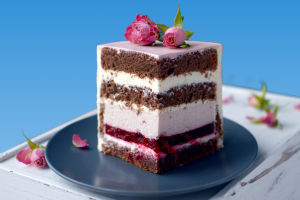There’s no doubt about it — coffee is more than just a drink; it’s a global obsession. From the early morning brew that kicks off your day to the afternoon pick-me-up, coffee has become a fundamental part of life for millions of people worldwide.
But Lykkers, how did this aromatic beverage capture the hearts of so many, and why does it continue to hold its place as one of the most beloved drinks in the world? Let’s dive deep into the rich history, varieties, and benefits of coffee.
The Origins of Coffee: A Legendary Beginning
The story of coffee is as rich and fascinating as the beverage itself. Legend has it that coffee was discovered by an Ethiopian goat herder named Kaldi in the 9th century. Kaldi noticed that his goats became unusually energetic after eating the red berries from a certain tree. Curious, he tried the berries himself and experienced a similar surge in energy. Word of this magical fruit spread, eventually making its way to the Arabian Peninsula, where coffee was first brewed.
By the 15th century, coffee was being cultivated in Yemen, and by the 16th century, it had spread to Persia, Egypt. Coffeehouses, known as qahveh khaneh, quickly became popular in these regions, becoming centers for social interaction, intellectual discussion, and even political debate. It wasn’t long before the love for coffee crossed continents, reaching Europe and beyond.
The Coffee Bean: Varieties and Cultivation
Coffee is made from the seeds of the Coffea plant, commonly known as coffee beans. There are two main varieties of coffee beans:
1. Arabica
Arabica coffee, known for its smooth and sweet flavor, is the most popular coffee variety worldwide, accounting for about 60% of global coffee production. These beans are grown primarily in Central and South America, as well as parts of Africa and Asia.
2. Robusta
Robusta coffee has a stronger, more bitter taste and contains higher levels of caffeine. It’s typically used in espresso blends or instant coffee due to its intense flavor. Robusta beans are mainly grown in Africa and Southeast Asia.
The Brewing Process: From Bean to Cup
The journey of coffee from bean to cup involves several steps:
1. Roasting
Once harvested, coffee beans are roasted to bring out their flavor. The degree of roasting — light, medium, or dark — affects the final taste of the coffee.
2. Grinding
After roasting, the beans are ground to the desired consistency. Coarse grinds are used for methods like French press, while finer grinds are necessary for espresso machines.
3. Brewing
There are many ways to brew coffee, including drip brewing, espresso, French press, pour-over, and cold brew. Each method brings out different characteristics in the coffee, from the strength of flavor to the smoothness of texture.
The Benefits of Drinking Coffee
Coffee is not only a delicious beverage but also offers several health benefits:
1. Boosts Energy Levels
Caffeine, the active ingredient in coffee, is a natural stimulant that helps improve focus, alertness, and energy. It’s no wonder so many people rely on their morning cup to jumpstart their day.
2. Rich in Antioxidants
Coffee is packed with antioxidants, which help protect the body from free radicals. In fact, for many people, coffee is one of the largest sources of antioxidants in their diet.
3. May Improve Brain Function
Studies suggest that regular coffee consumption may help reduce the risk of neurodegenerative diseases like Alzheimer’s and Parkinson’s. Caffeine has been shown to enhance cognitive function and improve memory in the short term.
From its humble beginnings in the mountains of Ethiopia to its current status as a global staple, coffee has certainly made its mark on the world. No matter you prefer a bold espresso, a frothy cappuccino, or a refreshing cold brew, there’s no denying the magic that coffee brings to our lives. So, the next time you sip on your cup of coffee, remember you’re part of a centuries-old tradition, connecting people around the world, one cup at a time.


